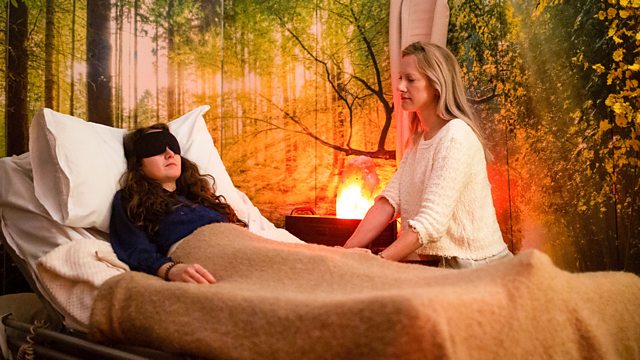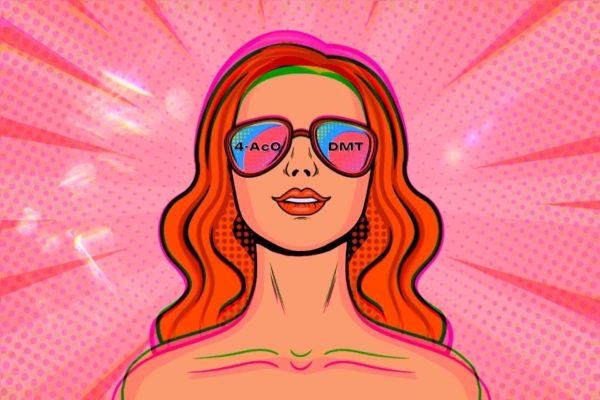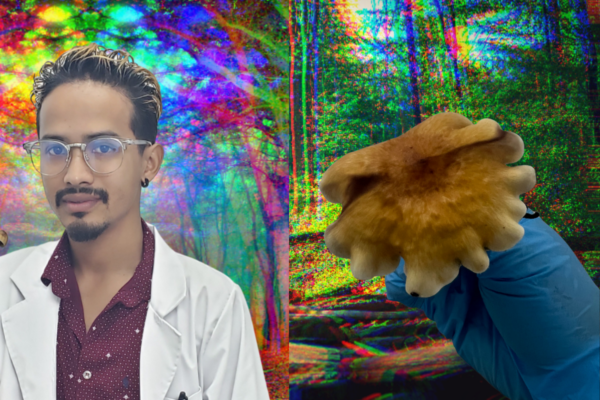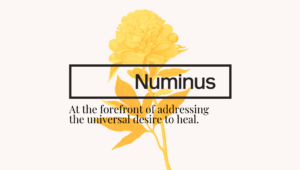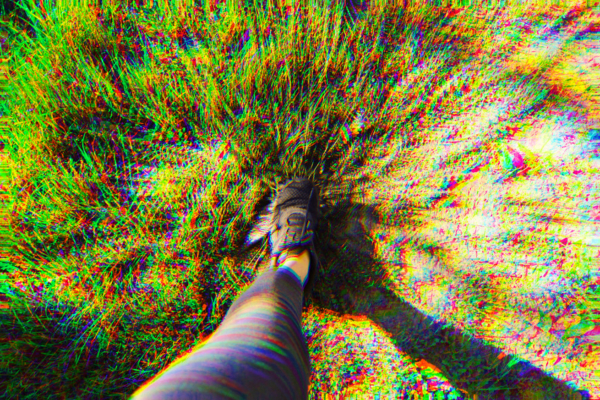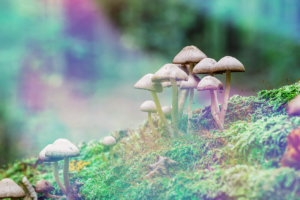
1. Clinical trials
Clinical trials are studies designed by experts from the fields of Neuroscience, Psychology and other areas of the biomedical sector. They measure the potential mental benefits of psychedelics to treat conditions like depression, anxiety and PTSD. In this context, candidates have the chance to make a societal impact by contributing to the advancement of science. So far, a plethora of studies have been conducted in the field of psychedelic research and there are many more to come. As enthusiastic as one may be about the potential health benefits of these drugs, we need more data to validate their potential benefits, as detailed by Dr. Robin Carhart-Harris in the Huberman Lab podcast. In order to be eligible for a psychedelic clinical trial, one must meet all the inclusion criteria. Typically, this means that they must be diagnosed with the specific condition currently being investigated, be of legal age, and not be prescribed any medication that is contraindicative. To facilitate your search, Psychedelic Spotlight has compiled a list of 116 clinical trials recruiting volunteers globally. If you do decide to explore psychedelic experiences that way, you may want to visit our page on How To Enroll in a Psychedelic Clinical Trial.
2. Psychedelic-assisted therapy
Psychedelic-assisted therapy is generally offered to patients suffering from treatment-resistant depression, major depressive disorder or PTSD who have not found success with conventional treatments. Individuals can access legal medical centers offering psychedelic therapy in certain states in the U.S., as well as in Australia. Canada’s Special Access Program also provides legal access, however, so far only a few patients a year tend to be granted access to these treatments through the SAP. Psychedelic-assisted therapy involves giving a high dose of a psychedelic compound, such as psilocybin or MDMA to a patient. During the sessions, which can last up to six hours, patients are guided by a licensed mental health professional and discuss their experience with the therapist. Thus, psychedelics and traditional therapy work act as counterparts; and credit cannot be attributed only to the drug. The legality of the use of psychedelics in therapy clinics varies per country, region and pharmacological typifications. For instance, the state of Oregon allows regulated and licensed use of psilocybin for therapy. Similarly, there are multiple centers around the world that offer ketamine and ibogaine-assisted sessions for depression, PTSD and even alcohol use disorders. If you’re interested in exploring psychedelic-assisted therapy, you can find more information here. In addition, in-depth research about the legislation of each jurisdiction is necessary.
3. Spiritual rituals
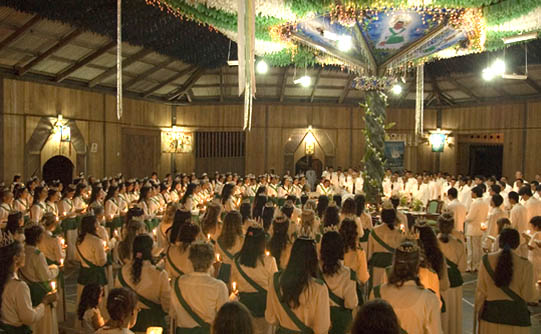
Many groups see psychedelic experiences as a “spiritual awakening”, hence the etymology – to reveal one’s soul. For instance, traditional indigenous ceremonies are allowed by law on the use of ayahuasca tea in countries like Brazil and the U.S. In the Netherlands, religious expression is highly protected by law, and so is the use of psilocybin truffles or ayahuasca in ritualistic ceremonies. However, the spiritual use of other psychedelic compounds may be prohibited by law in these countries and in other parts of the world. For that purpose, specific law research must be conducted to ensure the legality of a psychedelic spiritual ritual in each jurisdiction. A good recommendation to get acquainted with the religious use of these substances is the docu-series How to Change Your Mind, narrated by Michael Pollen and available on Netflix.
You may also like: Where Are Psilocybin Mushrooms Legal or Decriminalized Around the World?
3.1 Santo Daime Church
Santo Daime is a religion or doctrine that originated in the state of Acre, Brazil, in the 1930’s. This group uses ayahuasca tea in ritual ceremonies that involve elements of the Catholic and African religions, such as hymns and dances, to connect with the divine, explore the unconscious mind and develop community. Since its founding, Santo Daime became a community that spread around the world, establishing churches in various countries. For example, Health Canada has approved six federal exemptions, allowing the existence of ayahuasca churches in Montreal, Toronto and Winnipeg to import and use the sacred tea – an Indigenous brew composed of harmaline and dimethyltryptamine (DMT). Because Santo Daime is a religious entity, they are protected by the law and are allowed to run Ayahuasca sessions in several places in the world. The ceremonies are free, but as a church, voluntary work or donations are appreciated. Hit ‘Santo Daime Church’ in your search bar and discover the nearest location to you – there are many churches in the U.S. and Canada.
You may also like: Yep – Legal Ayahuasca Churches Are a Thing in Montreal
4. Psychedelic retreats
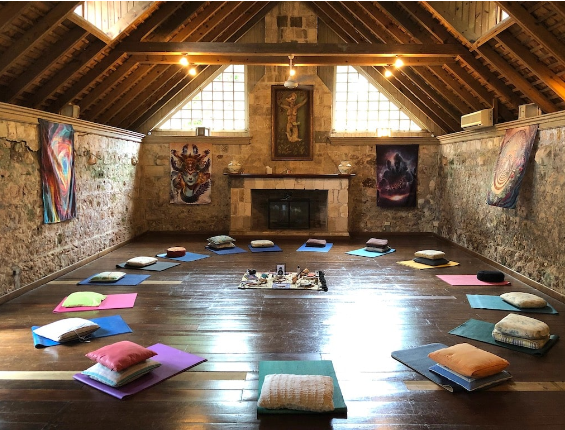
Psychedelic retreats offer a safe and supportive environment for personal growth and exploration using substances like psilocybin, ayahuasca, 5-MeO-DMT, or ibogaine in countries where these substances are legal or simply unregulated, such as Jamaica and Mexico. These centers provide a space to conduct sessions of psychedelic experiences in the presence of experienced psychedelic facilitators and integration therapists. Psychedelic retreats can overlap with spiritual rituals because many of these centers have a spiritual approach to psychedelics, and perhaps the main difference lies in the fact that retreats are longer, typically between four and seven days, and tend to have several psychedelic-facilitated sessions. There are different types; individual, in groups, therapeutic or clinical. Individuals who visit psychedelic retreats are diverse and come from all walks in life. This means that group retreats may include corporate white color executives, the psychedelic-curious, individuals seeking alternative therapy, all in one setting – which may not be everyone’s cup of tea. Psychedelic retreats come in all forms, sizes and formats. In this sense, it’s important to research the values, approach and settings available in each retreat, and make a choice according to one’s needs. Psychedelic retreats are available and protected by law in many countries because of their religious character. Nonetheless, it’s essential to check the legality in each jurisdiction. Until then, here’s a list of some affordable psychedelic retreats, and also 5 amazing psilocybin retreat reviews from people who underwent this experience.
5. Smartshops

Originating in the Netherlands, smartshops are stores legally allowed to sell psychoactive substances. In the Netherlands, psilocybin truffles are legal to purchase and consume via these stores. However, the law is strict when these substances are marketed as a mental health aid rather than food. Other European countries like Spain and Belgium also allow smart shops to sell psychoactive substances, with specific regulations that vary according to the pharmacological typification. Some smartshops may ship products like magic truffles within the European Union borders, but it’s essential to check the regulations and possibilities for each website, and the region to be shipped to. More importantly, if you purchase psychedelics at a smartshop, make sure to use them in a safe environment, with experienced people, and not on the streets mixing with other types of drugs.
Understanding the risks
While psychedelics have shown to be promising in the treatment of various mental health disorders, it’s important to spread awareness about the potential risks associated with their use. Legal access typically means there is a degree of safety associated with the substance. However, we can’t consider this to be a universal truth for every psychedelic out there. That’s because the type of substance, the health condition of the individual, and the context in which people use psychedelics play a big role in determining the safety levels of these substances. Some of the risks may include:
- Resurfacing of traumatic or repressed memories
- Mind-altering experiences
- High blood pressure and heart rate
- Potential psychosis
Although the interest in psychedelic-assisted therapy is associated with these compounds’ capacity to unearth repressed traumas that may be the root cause of psychiatric conditions, individuals typically undergo preparation sessions before embarking on a journey. For the inexperienced and unprepared novice, psychedelic trips may bring about anxious ego dissolution when traumatic experiences resurface.
When embarking on psychedelic journey, people go into the unknown. Accepting the waves of thoughts and feelings with curiosity is a crucial component to avoid potential bad trips. Having a trusted trip sitter during these experiences is not only recommended by experienced psychonauts, but is also the general practice in psychedelic medical centers, retreats, spiritual rituals and churches. Generally, almost all the legal pathways to psychedelic experiences offer this support, except for smart shops. Some stores allow people to use the substances and have someone else sober present, but it’s not always the case.
When it comes to the risk of potentially having physiological effects and psychosis, only clinical trials and psychedelics-assisted therapy are safe options, and sometimes selected retreats. Professionals will assess the mental and physical health of an individual, and determine whether it’s safe for the person to join the psychedelic experience based on their historical data. People with a predisposition for psychosis disorders, or cardiovascular health problems, or who have interactions with SSRI medications will most likely be excluded from a psychedelic experience. Therefore, spiritual ceremonies or smart shops are most likely not the safest way to experience psychedelics, especially for people in risk groups. To discover which legal way is the best for someone, it’s always recommended to consult with a doctor before going for a psychedelic experience.
Resurfacing of traumatic or repressed memories
Because psychedelics may potentially reveal the depths of our unconsciousness, this encounter can be highly confrontational. A person may be brought back to painful memories from their childhood and not know how to deal with them. For this reason, having professionals like psychologists, a therapist or a retreat facilitator can be safer. When going into a psychedelic journey, individuals go into uncertainty; having experienced people around to guide them through the unexpected waves is essential to increase the chances of a better experience. Environments like clinical trials, spiritual ceremonies or retreats, and psychedelic-assisted therapy are the safest options in this case, because there is often a moment for the psychedelic user to connect with their guides before the trip, subjectively allowing the space for processing uncomfortable emotions.
Mind-altering experiences
One of psychedelics’ superpowers is the ability to alter our sensory perception. This means that individuals can expect to experience perceptual changes, synesthesia, emotional shifts, and a distorted sense of time. Perceptual changes can include visuals such as halos around lights and objects as well as geometric patterns when your eyes are closed. Although the subjective effects are often praised among recreational users, hallucinations may be extremely disorienting for some people, and therefore dangerous. Given this context, the presence of a guide, a ‘trip sitter’, or a health professional is essential. Avoid using these substances in unsafe places and unaccompanied, such as high buildings or on the streets. Although some smart shops offer the possibility to use psychedelics in their store, with the presence of a worker, this does not mean that the person is trained to supervise the trip.
High blood pressure and heart rate
Some individuals may experience increased heart rate and blood pressure under the effects of psychedelics. Pre-existing cardiovascular conditions can play a big role in shaping the experience. Physicians in clinical trials and psychedelic retreats can assess whether an individual is suitable for a psychedelic trip. Some psychedelic retreats may also conduct thorough screening before allowing someone to join. Regardless, everyone should keep these physiological effects in mind, especially individuals who may suffer from arrhythmia or other cardiac conditions. In that case, consult with a doctor before trying other legal ways, such as using psychedelics in spiritual ceremonies or at smart shops.
Potential psychosis
Individuals with a predisposition to psychotic disorders or those who may be at risk for schizophrenia should refrain from using psychedelics. The risks of having a challenging experience are much higher and the consequences can be severe. Typically, clinical trials, psychedelic-assisted therapy and selected retreats will conduct thorough screening to assess whether it’s safe for someone to have a psychedelic experience, and exclude the participation of individuals in this risk group.
In summary
Psychedelics are gaining more attention from the scientific community and from individuals who could use their potential mental health benefits. However, it’s critical to keep in mind that these are powerful drugs; therefore it’s advised to have a conscious approach to them. In an interview with Time Magazine, Michael Pollan pointed out that “people do have terrifying, excruciating experiences. In the right context, those can be very valuable—if you’re with a well-trained guide to help you understand that experience or get out of it”. Learn if you can explore one type of psychedelic experience legally and safely in ‘Where Are Psilocybin Mushrooms Legal or Decriminalized Around the World?‘.
